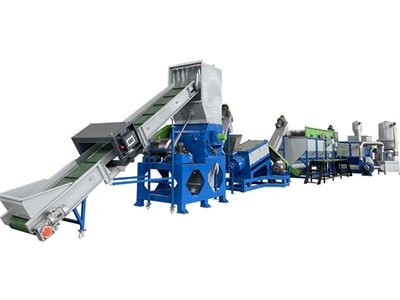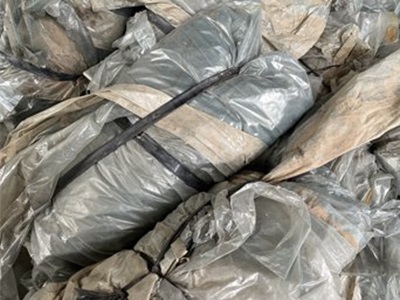The environmental impact of plastic waste, particularly in agricultural settings, has become a pressing concern worldwide. Agricultural polyethylene (PE) films, widely used for crop protection and greenhouse cultivation, contribute significantly to plastic pollution when improperly managed. To mitigate these environmental challenges, the implementation of agricultural PE film washing lines has emerged as a promising solution. This article explores the environmental concerns associated with agricultural PE films and how washing lines offer a sustainable approach to address them.

Agricultural PE films serve critical functions in modern farming practices, including weed control, soil moisture retention, and crop protection. However, their widespread use has led to environmental repercussions, especially in regions with intensive agricultural activities. At the end of the growing season, these films are often discarded, leading to plastic pollution in farmlands, water bodies, and ecosystems. Improper disposal can result in soil degradation, wildlife entanglement, and contamination of agricultural produce, posing significant threats to environmental health and biodiversity.
The increasing adoption of plastic mulching techniques in agriculture has exacerbated the problem, as fragmented PE films persist in soil and water bodies, releasing harmful chemicals and microplastics into the environment. Consequently, there is a growing recognition of the need to transition towards more sustainable practices and technologies that minimize the environmental impact of agricultural plastic waste.
Recycling agricultural PE films presents unique challenges due to their contamination with soil, debris, and agrochemical residues. Traditional recycling methods, such as mechanical shredding and extrusion, are often ineffective in removing contaminants and restoring the quality of recycled materials. As a result, a considerable portion of used agricultural PE films ends up in landfills or incineration facilities, exacerbating environmental degradation and resource depletion.
Moreover, the decentralized nature of agricultural plastic waste management poses logistical challenges in collection, sorting, and processing. Unlike municipal solid waste systems, which are relatively centralized and structured, agricultural plastic waste management involves diverse stakeholders, including farmers, recyclers, waste management agencies, and regulatory authorities. Coordinating these stakeholders and streamlining waste collection and recycling processes require innovative approaches and collaborative efforts.
Agricultural PE film washing lines offer a sustainable and efficient solution for recycling used films while minimizing environmental impact. These specialized systems utilize a series of washing, sorting, and drying processes to clean and prepare PE films for recycling. The washing line begins with the shredding of collected films, followed by thorough washing to remove soil, debris, and chemical residues. Advanced filtration and separation techniques ensure the recovery of clean and high-quality PE materials suitable for reuse in various applications.
The introduction of washing lines represents a paradigm shift in agricultural plastic waste management, offering a closed-loop solution that transforms discarded films into valuable resources. By incorporating washing line technologies into waste management infrastructure, stakeholders can create a more circular economy that maximizes resource efficiency and minimizes environmental pollution.
The adoption of agricultural PE film washing lines yields significant environmental benefits at multiple levels. By diverting used films from landfills and incinerators, washing lines help reduce the volume of plastic waste polluting natural ecosystems. Moreover, the recycling of cleaned PE materials conserves valuable resources and reduces the demand for virgin plastics, thereby mitigating the environmental footprint of plastic production and consumption. Additionally, the use of recycled PE films promotes circular economy principles by closing the loop on plastic waste and supporting sustainable resource management practices.

Despite their environmental benefits, the implementation of agricultural PE film washing lines presents certain challenges and considerations. The initial investment cost and operational expenses associated with establishing and maintaining washing line facilities may pose financial barriers, particularly for small-scale farmers and recycling enterprises. Additionally, logistical challenges related to film collection, transportation, and processing require coordinated efforts among stakeholders, including farmers, recyclers, and regulatory authorities.
Moreover, ensuring the quality and safety of recycled PE materials is essential to market acceptance and consumer confidence. Rigorous quality control measures and material testing protocols are necessary to verify the integrity and performance of recycled PE films in various applications, including agricultural, industrial, and consumer products.
Addressing environmental concerns associated with agricultural PE films requires concerted efforts and innovative solutions. Agricultural PE film washing lines represent a proactive approach to sustainable waste management, offering a viable pathway for recycling used films and reducing plastic pollution in agricultural environments. By integrating washing line technologies into waste management strategies, stakeholders can foster a more circular and environmentally responsible approach to agriculture. Moving forward, collaborative initiatives, technological advancements, and policy support are essential to realizing the full potential of agricultural PE film washing lines in achieving a greener and more sustainable future.